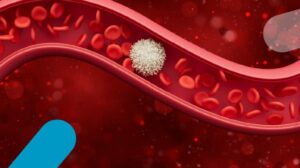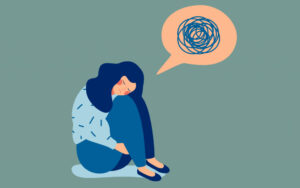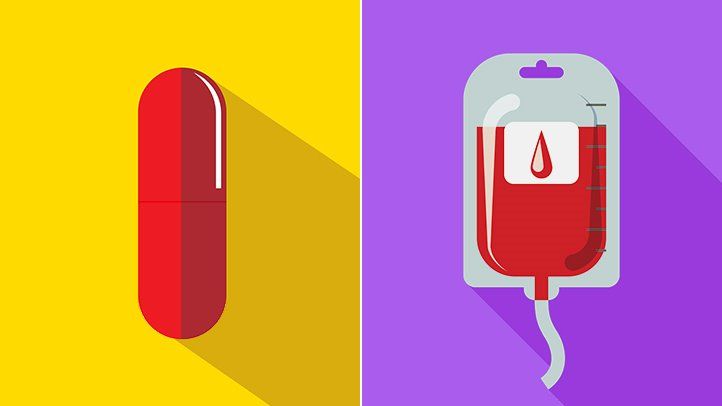Depression is a serious mental health disorder that can hurt your life. It is estimated that around 7% of people in the world suffer from depression at some point in their lives. Anemia is a condition that occurs when you don’t have enough red blood cells to carry oxygen throughout your body. This can lead to fatigue, shortness of breath, and other problems. In this blog post, we will discuss the relationship between anemia and depression. We will also provide information about how you can get help if you are struggling with either of these conditions.
Contents
What is Anemia?

Anemia is a medical condition in which there is a decrease in the number of red blood cells or hemoglobin in the blood. This can lead to fatigue, pale skin, and shortness of breath.
Anemia is a common condition, and there are many different types. Iron deficiency anemia is the most common type of anemia. It occurs when there is not enough iron in the body to make hemoglobin.
What is Depression?
Depression is a mental disorder that causes a persistent feeling of sadness and loss of interest. It can interfere with your ability to work, study, eat, sleep, and enjoy activities you once enjoyed. Depression affects how you think, feel, and behave.
There are different types of depression, including major depressive disorder (MDD), persistent depressive disorder (PDD), bipolar disorder (BD), seasonal affective disorder (SAD), and postpartum depression (PPD). MDD is the most common type of depression.
What Is the Link Between Anemia and Depression?

The link between anemia and depression is not fully understood, but there are some theories. One theory is that anemia can cause fatigue, which can lead to depression. Another theory is that anemia can cause changes in brain function, which can lead to depression.
Anemia and depression often occur together. If you have anemia and are feeling down or depressed, it is important to talk to your doctor. He or she can help you manage your condition and improve your quality of life.
Anemia and depression often occur together. If you have anemia and are feeling down or depressed, it is important to talk to your doctor. He or she can help you manage your condition and improve your quality of life.
Sometimes, people with anemia also have other medical conditions that can cause depression. For example, people with iron deficiency anemia may also have thyroid problems. Treating the underlying condition can help improve symptoms of depression.
Common Causes of Anemia and Depression

Causes of anemia and depression can be linked. A person who is anemic may have a low level of iron in their blood, which can lead to fatigue and feelings of sadness. Low levels of vitamin B12 can also cause anemia, which can lead to depression.
There are many other possible causes of anemia and depression, including:
Family History of Either Disorder
Family history is one of the most significant risk factors for both anemia and depression. If you have a family member with either disorder, you are more likely to develop the condition yourself.
Certain Medical Conditions
Certain medical conditions can lead to anemia or depression, including:
- Celiac disease
- Crohn’s disease
- Kidney disease
- Liver disease
- Pancreatic cancer
- Thyroid problems
- Ulcerative colitis
Medications
Some medications can cause anemia or depression, including:
- Antidepressants
- Anti-seizure medications
- Blood pressure medications
- Chemotherapy drugs
- Nonsteroidal anti-inflammatory drugs (NSAIDs)
- Oral contraceptives
- Proton pump inhibitors (PPIs)
- Statins
Constant Stress
Chronic stress can lead to anemia and depression. If you are constantly under a lot of stress, your body may not be able to produce enough red blood cells or cope with the emotional demands of daily life, leading to fatigue and feelings of sadness.
Feeling Isolated and Lonely
People who feel isolated and lonely are at increased risk for both anemia and depression. If you don’t have a strong support system, you may not get the nutrients you need or the emotional support that can help prevent depression.
Treatment Options For Anemia and Depression

There are many different ways to treat anemia and depression. The most common treatments are medication and therapy.
Medications
One of the most common medications used to treat anemia is iron supplements. Iron supplements can be taken in pill form or as injections. If you are taking iron supplements, it is important to take them with food so that your body can absorb the iron more easily.
Other medications used to treat anemia include:
- Folic acid
- Vitamin B12
- Erythropoietin (EPO)
- Red blood cell transfusions
Therapy
Many different types of therapy can be used to treat anemia and depression. The most common type of therapy is cognitive behavioral therapy (CBT). CBT is a type of therapy that helps people change their negative thinking patterns and behaviors. Other types of therapy that can be used to treat anemia and depression include:
Interpersonal therapy is a type of therapy that helps people improve their relationships with others. This therapy is also sometimes used to treat depression.
Family therapy is a type of therapy that helps people improve their relationships with their family members. This therapy can also be used to help people deal with the stress of having anemia.
Support Groups
Support groups are groups of people who share similar experiences and feelings. Also, Support groups can provide emotional support and practical advice for people who have anemia or depression. Support groups are a good way to connect with other people who understand what you are going through.
Some of these support groups are available online, which can be a great option if you cannot attend meetings in person. Many support groups meet in person. To find a support group near you, ask your doctor or mental health provider, or search online.
Self-Care
Another treatment method for anemia and depression is self-care. Self-care means taking care of yourself physically and emotionally. There are many different ways to practice self-care, but some examples include:
Eating a healthy diet
Eating a healthy diet can help you feel better physically and emotionally. Also, Eating a balanced diet that includes plenty of fruits, vegetables, and whole grains can help you get the nutrients you need to stay healthy.
Exercising regularly
Exercising is a great way to improve your physical and mental health. Exercise can help reduce stress, improve mood, and increase energy levels.
Getting enough sleep
Getting enough sleep is important for both physical and mental health. Most adults need between seven and eight hours of sleep per night.
Practicing relaxation techniques
Relaxation techniques such as yoga, meditation, or deep breathing can help reduce stress and improve mood.
Conclusion
Dealing with anemia can be a difficult and trying experience. Depression may worsen the symptoms and make it harder to cope. It is important to be aware of the link between anemia and depression and to seek help if you are experiencing either condition. With proper treatment, it is possible to improve your quality of life.
If you think you may be suffering from anemia or depression, speak to your doctor. They can help you get the treatment you need to feel better.
Hope this article was of help to you! If you are suffering from mental health disorders, you may seek help from Therapy Mantra. We have a team of highly trained and experienced therapists who can provide you with the tools and skills necessary for overcoming mental health disorders. Contact us today to schedule an online therapy or download our free Android or iOS app for more information.


